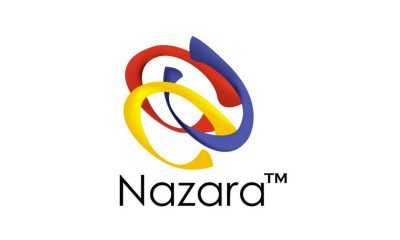Latest News
Measures for a safer gambling market – CEO call from the gaming industry

 Reading Time: 4 minutes
Reading Time: 4 minutes
The Swedish Trade Association for Online Gambling (BOS (Branschföreningen för Onlinespel)) has today published the following open letter:
The Ministry of Finance’s proposal for placing further restrictions on the Swedish gambling market has been met by strong and unanimous criticism. All stakeholders in the gambling industry (state and private), as well as sports clubs, the Swedish Gambling Authority, and international and national media have all stated that the proposals are unrealistic and how they play into the hands of the unlicensed market. The Minister for Public Administration then chose to adjust the proposals somewhat, but only to improve conditions for state-controlled companies. Now a new report shows that implementing deposit limits on online casinos alone would mean that almost half of all bets would end up being placed with unlicensed companies. The entire Swedish gambling industry has been beset by uncertainty, with many customers abandoning licensed companies and moving instead to unlicensed companies. If we don’t start to cooperate and introduce long-term measures grounded in facts, we risk turning back the clock to what the market looked like prior to re-regulation.
Recently, the independent research firm Copenhagen Economics published a new report describing how deposit limits would affect online casinos. The report, which is based on turnover data, consumer surveys, interviews, and international research, shows that the channelization for online casinos will fall from an already low 75% to an even lower 52-63% if deposit limits come into force. This means almost half of all bets will be placed with unlicensed companies.
Neither the Ministry of Finance nor any other stakeholder has presented facts to support the underlying assumption that gambling in general – and play on online casinos in particular – have increased during the covid-19 crisis. In its recent report to the Swedish government, the agency responsible for the Swedish gambling market also confirms it hasn’t detected increased gambling during the coronavirus pandemic.
The government is aware of the alarmingly low percentage of online casino players who now play within the licensed Swedish system. The government has also seen data from the Swedish Tax Agency that show gambling on horse races – and not online casino gambling – has increased during the coronavirus crisis.
We share the government’s view that protection for and of players is of the utmost importance. We agree that this work must continue and that together we can create a sustainable gambling market with strong consumer protections. But the work must be based on facts.
The Ministry of Finance has the opportunity to implement a number of fact-based measures that would improve consumer protections without damaging the important channelization. On the contrary, the channelization would benefit with these measures, which would also strengthen consumer protections.
Expand licensing requirements
Introducing licensing requirements for companies that supply games as well as the companies that provide customers, so-called B2B licenses, would increase the Swedish Gambling Authority’s ability to regulate the market and prevent the black market from targeting Swedish gamblers. The measure would promote the channelization and is therefore welcomed by the licensed gambling industry as well as gambling addiction organizations.
IQ campaign for the gambling industry
There is very little awareness about Spelpaus, the central self-removal register, as well as other regulated consumer protection measures. The Swedish Gambling Authority and the Swedish Consumer Agency should be tasked with increasing public awareness about these tools. Systembolaget’s IQ campaign could serve as inspiration for a proactive information portal.
Gambling companies’ data is part of the solution
The digital gambling industry collects and processes large amounts of data on customers’ gambling behaviour. The Ministry of Finance should instruct the Swedish Gambling Authority to request regular reports, with anonymized data, on customers’ gambling behaviour in order to increase understanding about gambling habits and identify any systematic problems. The gambling companies have this data and already share it with researchers.
Great strides have been made in machine learning and artificial intelligence. Computers are capable of handling huge amounts of data and identifying the patterns required for increasing understanding and providing the basis for decisions. The gambling industry is also making progress in this area and sees great opportunities for improving our ability to detect and stop harmful phenomena such as problem gambling, match fixing, and money laundering. The Ministry of Finance has a golden opportunity to initiate a strategic collaboration in this area together with authorities, researchers, the gambling industry, and gambling addiction groups.
Sharing of data between companies
The EU’s strict data protection laws are generally a good thing. We share the view that each individual should own their own data. Having the opportunity to share personal data between gambling companies as well as between gambling companies and authorities would make it easier to quickly identify and prevent gambling problems or fraudulent activities. Today, every gambling company can make these discoveries on their own but can’t share the information in a simple and legal way.
Risk ratings for players, not products – and with support from actual data
Addictive and unhealthy behaviour by individuals is individual and is easy to track in the gambling industry thanks to the large amount of data that is continuously collected from all players. Any future risk classification system must be based on the conditions and actions of the individual.
Extend the Swedish Gambling Authority’s mandate
The government must clarify the Swedish Gambling Authority’s mandate to ensure the integrity of the licensing system and in so doing strengthen the all-important degree of channelization.
Extend the Duty of Care to more industries
The challenges we have in society are rarely isolated to one individual stakeholder or industry. In order to curb increased indebtedness stemming from gambling, the lending market – and the instant lending market in particular – also need to take responsibility for lowering excessive debts. Today, the gambling industry can access information about a customer’s liquidity, but it’s hard to determine whether the money is borrowed or earned. A central self-removal register like Spelpaus should be considered for instant loans.
Stockholm 2020-06-08
Pontus Lindwall, CEO, Betsson AB
Henrik Tjärnström, CEO, Kindred Group
Gustaf Hagman, Group CEO, LeoVegas
Therese Hillman, VD, NetEnt AB
Ulrik Bengtsson, Group CEO, William Hill Plc
Lahcene Merzoug, CEO, ComeOn
Alexander Stevendahl, CEO, Videoslots
Tomas Backman, CEO, Hero Gaming
Henric Andersson, CEO, SuprNation
Gustaf Hoffstedt, Secretary General, Swedish Trade Association for Online Gambling (BOS)
Source: Latest News on European Gaming Media Network
This is a Syndicated News piece. Photo credits or photo sources can be found on the source article: Measures for a safer gambling market – CEO call from the gaming industry

Latest News
PH 3RD QUARTER GGR FLAT AT PHP94.51B AMID ONLINE GAMING REFORMS
Reading Time: 2 minutes
The Philippine gaming industry posted Php94.51 billion in gross gaming revenues (GGR) in the third quarter of 2025, a slight dip from the Php94.61 billion a year earlier as the industry adjusts to online reforms and tighter rules on digital payments.
The Philippine Amusement and Gaming Corporation (PAGCOR) said the Electronic Games (E-Games) segment remained the strongest performer, rising 17.4% to Php41.95 billion from Php35.71 billion year-on-year.
PAGCOR Chairman and CEO Alejandro H. Tengco noted, however, that the E-Games growth was mainly due to strong July 2025 numbers as revenues in August and September declined following the mandatory delinking of e-wallets from legitimate gaming platforms.
“The figures reflect an industry that is adjusting to necessary safeguards,” he said. “The delinking of e-wallets resulted in a short-term decline in activity toward the latter part of the quarter,” he said. “However, these measures are vital to protect players and ensure secure, transparent transactions.”
He also cautioned that while legitimate operators strictly comply with the new rules, illegal online gaming sites continue to expand aggressively, putting players at risk.
“These unauthorized platforms do not follow responsible gaming standards, do not pay taxes, and put players at risk of data theft and fraud,” Mr. Tengco said. “We urge the public to avoid illegal sites and to engage only with PAGCOR-licensed platforms.”
Outside of E-Games, all other gaming segments registered lower earnings during the third quarter.
PAGCOR-operated casinos recorded an 11.6% decline from Php3.64 billion to Php3.22 billion, while licensed casinos fell 10.2% from Php50.72 billion to Php45.56 billion. Bingo revenues likewise slid 16.2% from Php4.52 billion to Php3.79 billion.
In terms of GGR share, PAGCOR-operated gaming venues generated 3.4% of the GGR pie while licensed casinos brought in 48.2%. E-Games contributed 44.4% and bingo operations accounted for 4% of GGR during the quarter in review.
Despite the downward trend in some gaming segments and adjustments in the online digital payment ecosystem, Mr. Tengco expressed confidence that the industry would regain momentum as players adapt to new e-wallet protocols while authorities strengthen enforcement measures against illegal gambling portals.
The post PH 3RD QUARTER GGR FLAT AT PHP94.51B AMID ONLINE GAMING REFORMS appeared first on European Gaming Industry News.
Latest News
Kambi Group plc’s CEO Werner Becher acquires shares in Kambi
Reading Time: < 1 minute
Kambi today announces that CEO Werner Becher acquired 28,360 shares in Kambi on 7 November 2025.
Werner Becher has on 7 November 2025, through his associated company WBCH Invest Ltd, acquired 28,360 shares in Kambi. The average price for the transaction was SEK 114.24 and the total value was SEK 3,239,846.
Following the transaction, Werner Becher holds a total of 98,360 shares, equal to 0.33% of the total share capital, and 279,724 options in the company.
The transaction was reported to the Malta Financial Services Authority on 10 November.
The post Kambi Group plc’s CEO Werner Becher acquires shares in Kambi appeared first on European Gaming Industry News.
Latest News
xpate Automates Fraud and Chargeback Management for Regulated Industries
Reading Time: 2 minutes
New tools help merchants in regulated industries react faster to fraud, reduce losses, and streamline dispute resolution through the xpate merchant portal.
Fraud and chargebacks continue to weigh heavily on high-risk sectors, with fraudulent chargebacks making up more than half of all disputes worldwide. In this context, xpate, the all-in-one payments and banking hub, has launched new fraud and dispute management automation features to help merchants in regulated industries manage risk in real time, minimize financial losses, and simplify dispute handling.
With regulated industries facing fast-moving fraud patterns and complex dispute environments, xpate’s automation tools give merchants operational control, enabling them to identify, manage, and resolve potential fraud and chargebacks directly within the xpate merchant portal. Automated notifications ensure timely responses and consistent adherence to acquirer and network requirements.
“xpate’s mission is to simplify every part of the payment process, including the moments that require extra protection,” said Mike Shafro, CEO of xpate. “By automating fraud alerts and dispute processes, we’re removing friction and giving merchants back valuable time to focus on growth.”
The launch comes at a time when chargeback values in these industries average nearly $100 per case, underscoring the need for faster, automated solutions to protect revenue and maintain compliance. xpate’s real-time fraud notifications from card schemes and issuers give merchants an early chance to act before a chargeback occurs, for example, by issuing a refund to avoid penalties and protect their dispute ratios. Automated alerts ensure merchants respond within strict timeframes, helping them stay ahead of acquirer and card network requirements.
xpate has also introduced a fully integrated dispute workflow within its merchant portal. Merchants can now manage every stage of a dispute in one place, from reviewing new chargebacks and collaboration requests to submitting evidence or accepting liability. Larger operators can feed xpate’s notifications directly into their internal automation systems to streamline processing at scale.
“Every minute counts when it comes to collaborations, disputes, and fraud. Automation means our merchants can react in minutes, not days,” said Alex Fedorov, Senior Product Manager at xpate. “Whether they prefer to manage disputes manually or let xpate handle them, they now have full visibility and control.”
The new automation capabilities reflect xpate’s broader goal of simplifying payments and back-office operations for businesses of all sizes. xpate focuses on removing complexity rather than adding to it, a principle that continues to set the company apart as it develops solutions shaped by real merchant needs. In fast-moving, highly regulated industries where compliance requirements change quickly, xpate takes a practical, forward-looking approach to risk management and regulation, adapting to new standards instead of outdated industry barriers.
xpate is reshaping how businesses move money across borders. Founded in Riga and operating across Europe, xpate provides a single payments platform that connects banks, cards, and alternative payment rails, allowing merchants, marketplaces, and financial institutions to manage transactions and compliance in one place. With built-in orchestration and account management, it enables merchants to route, reconcile, and manage payments across multiple banks and payment rails. The company is among the first non-bank institutions with direct access to the Single Euro Payments Area (SEPA), giving clients faster and more transparent settlements.
The post xpate Automates Fraud and Chargeback Management for Regulated Industries appeared first on European Gaming Industry News.
-
Latest News3 months ago
ReferOn Shortlisted for Acquisition & Retention Partner of the Year at SBC Lisbon 2025
-
Latest News2 months ago
Duels for Friends in Trophy Hunter. Invite your friends and create a shared space for fun and competition.
-
Latest News3 months ago
BC.GAME Launches “Nezha” Slot with Up to 46,656 Ways to Win and 10,000x Max Payout
-
Latest News2 months ago
Announcement: 25th September 2025
-
Latest News3 months ago
NODWIN Gaming Acquires Sony Interactive Entertainment’s Stake in Evo; Becomes Majority Holder
-
Latest News3 months ago
Cyprus National Betting Authority Warns Public About Illegal Online Gambling and Misinformation
-
Latest News2 months ago
Flamez – A Fiery New Online Casino Contender from Ganadu
-
Latest News2 months ago
The Countdown is On: Less Than 3 Months to Go Until The Games of The Future 2025 Kicks Off in Abu Dhabi

















You must be logged in to post a comment Login